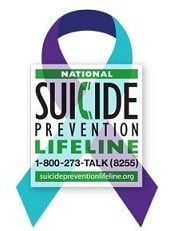If you’ve experienced an immense loss in your life, be it the death of a loved one, the ending of a long term relationship or friendship, or the loss of a job, you may find yourself going through the stages of grief. But what are those stages? Are certain behaviors “normal?” How long do they last? How can you get help to make your way through?
Here is a list of common responses to grief:
- Loss of appetite or emptiness in the stomach
- Inability to sleep or continuously dreaming of the loss
- A sense of denial that the loss really occurred.
- Crying unprovoked at unanticipated times
- A sense of anger in realizing the extent of the loss, oftentimes aimed at the one who left
- Difficulty concentrating combined with a sense of restlessness
- Making the person lost the center of your thoughts to the point of being preoccupied with them
- Physical symptoms like a heaviness in the chest or tightening of the throat
- Experiencing bouts of forgetfulness combined with lack of desire to complete projects
- Constantly reminding yourself about your loved one, or even taking on that person’s gestures
- Feeling as though your loved one is still present, like possibly “hearing” their voice or “seeing” them
These and other behaviors are common to those grieving, so there is no cause for alarm. However, grief can continue beyond a reasonable period of time, which is to say, it can be all consuming and unmanageable. If it comes to that point, then you should seek out counseling for your own health and peace of mind. Left unattended, some people even begin to think of hurting themselves, which is the last thing their loved one would have wanted.
If you find yourself in need of a listening ear that can help beyond just hearing you, reach out to Tracy Crain.






